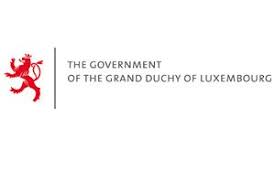
Global Webinar

The Public Expenditure and Financial Accountability (PEFA) Program in collaboration with the University of Essex presents:
Can Public Investment Policies integrate Climate Change and Livelihood?
Insights from South Asia

The objective of this virtual knowledge event is to present findings of the PEFA Research Competition Series Paper on “Integrating Climate Change and Livelihood within Public Investment Policies: A Cross-Country Assessment in South Asia (India, Nepal, and Sri Lanka)” and stimulate discussion on how to ensure climate finance gets delivered on the ground in the way it delivers to citizens’ needs.
Climate change is the biggest concern and challenge of this century, imposing significant effects on livelihoods and sustainable development. Among the global health and economic crises, “the climate crisis continues to grow”. South Asia, home to nearly a quarter of the world’s population, is one of the most vulnerable regions to climate change. Extreme weather and climate-related disasters, including avalanches, erratic rainfall, droughts, cyclones, floods, and landslides, have become increasingly frequent in South Asia in recent years. In this PEFA-sponsored research, the authors contributed to understanding the complexities of the institutional and public investment priorities for addressing climate change in South Asia.
The findings of the paper “Integrating Climate Change and Livelihood within Public Investment Policies: A Cross-Country Assessment in South Asia (India, Nepal, and Sri Lanka)” show that all three countries (i.e., India, Nepal, and Sri Lanka) have set clear climate change policies and priorities at the national government level.
However, the gap between the national-level climate change policies and the level of implementation at local levels appears to be widening. The voices of local communities and vulnerable groups are largely unheard in the process of developing policies and setting priorities. Governments are urged to set up mechanisms to ensure that centrally allocated climate change budgets reach the grassroots level. What are the best ways of doing that?
This paper is a product of the second PEFA-sponsored Research Competition on the theme PFM and climate change. The research was done by the research team at the University of Essex: Dr. Bedanand Upadhaya, Dr. Chaminda Wijethilake, Professor Pawan Adhikari, Professor Kelum Jayasinghe, and Professor Thankom Arun.
Dr. Radha Wagle: Director General of Department of Plant Resources, Ministry of Forests and Environment, Nepal
Novil Wijesekara: 2016 Asia Foundation Development Fellow, Founder of Community Resilience Center, Sri Lanka
Dr. Nirmala Padmanabhan: Associate Professor, St. Teresa’s College, Kerala, India
|
Dr. Bedanand Upadhaya is a Senior Lecturer in Accounting at Essex Business School, University of Essex. His ongoing research focuses on two very important areas affecting people’s lives and livelihoods: COVID-19 and climate change. He has published research papers in leading international journals. |
|
Dr. Chaminda Wijethilake is a Senior Lecturer in Accounting at Essex Business School, University of Essex. Chaminda is a Chartered Member of the Chartered Institute of Logistics and Transport (CILT) in the UK. He has published research papers in the areas of management control systems, sustainability strategy, and operations management in the leading high-ranked journals. |
|
Professor Pawan Adhikari is a Professor of Accounting at Essex Business School. His expertise lies within public sector accounting and his impact research has highlighted the issues that emerging economies face while improving their public sector accounting/accountability practices and is widely used in policy making. |
|
Professor Kelum Jayasinghe is a Chair in Accounting and the Director of Employability Development at Essex Business School; and Director of Centre for Environment and Society (CES) at University of Essex. Kelum is globally known as a critical researcher in accounting and development policy. His international profile is evidenced by his extensive publication record in reputed journals. |
|
Professor Thankom Arun is a Professor of Global Development and Accountability at the Essex Business School. He is a Fellow of the Academy of Social Sciences and the Royal Society of Arts, Manufactures and Commerce. Thankom's research is to understand the global challenges, particularly in developing/emerging country contexts, through an interdisciplinary approach. His recent research interests are in the areas of Fintech, financial inclusion, climate change and sustainability.
Contact PEFA Secretariat at: services@pefa.org
|





